SUMMARY
This is AI generated summarization, which may have errors. For context, always refer to the full article.
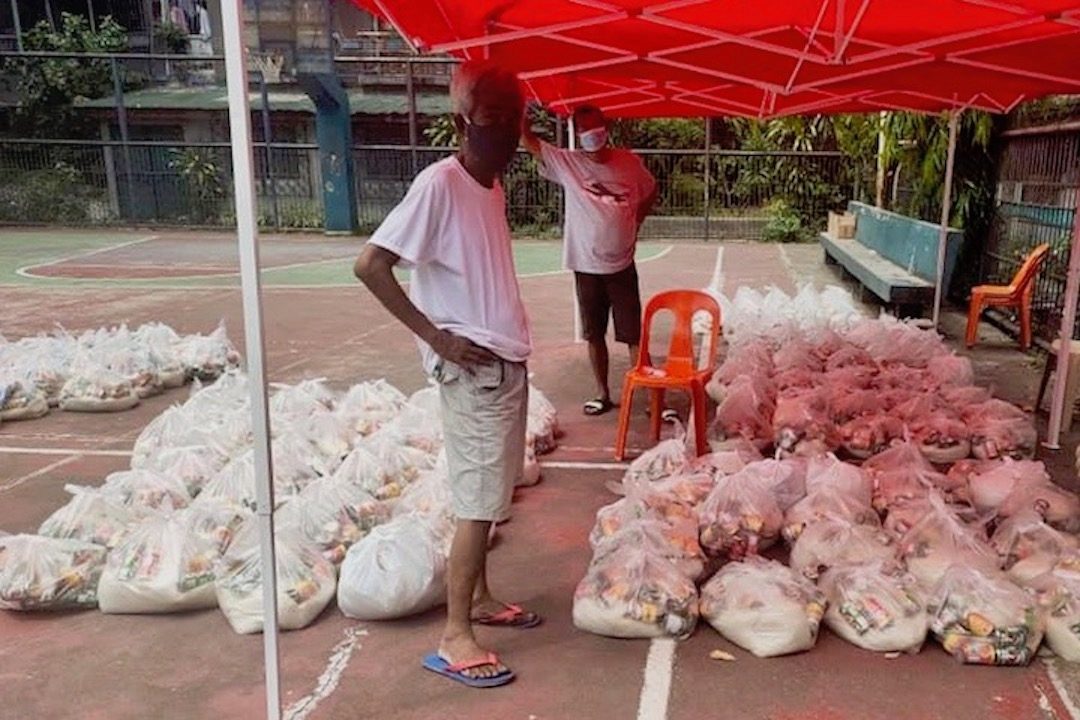
MANILA, Philippines – Barangay Captain Abdul Aziz Natanauan slouched as he sat speaking, staring intently at his phone’s camera lens as if to address his constituents, looking them straight in the eye.
“Good morning to all of you, especially to you, Congressman Alan Cayetano,” he said in Filipino, his voice heavy with a Batangueño accent.
“I am a barangay captain. I am struggling to explain to people what you said about all families receiving aid, which is not true,” he said in Filipino.
The barangay captain held the Facebook live address on Sunday, April 5. It has since burst on social media, especially among barangay officials. As of April 8, the video has been viewed 1.1 million times and shared over 96,000 times.
He was reacting to a widely shared Facebook video clip of the House Speaker and staunch Duterte ally saying that social amelioration card (SAC) forms should be given “per household.” SAC forms are the government’s validation tool to determine which families are eligible for P5,000 to P8,000 cash aid through the Bayanihan to Heal as One Act.
However, there is a limited and predetermined number of forms, making the act of validation itself selective. Natanauan’s constituents used Cayetano’s video to demand for forms and actual help.
“My request, since it seems that you are not helping our people, is that you shouldn’t add to the problem,” Natanauan said.
The video of Cayetano is only a follow-up to President Rodrigo Duterte’s own announcement after declaring the Luzon lockdown: that people who go hungry should go to their barangay captains.
“Where will people get food? It behooves upon the barangay captain. You barangay captains, listen. This is a mandatory duty. It does not have to have a law,” Duterte said in a pre-recorded address aired on Monday, March 16, as coronavirus cases in the country continued to rise.
Natanauan is a barangay captain in Talisay, Batangas. He has to keep watch over around 2,500 families, but based on the government’s count, only 821 SAC forms would be given to them.
Another barangay had it worse.
In Barangay San Luis, Antipolo City, sitio chairpersons have been threatened by their constituents with violence – once with a bolo, another time with a hammer – citing Cayetano’s video too, as they demanded help.
“We want to serve our country, but we don’t want our children to be orphaned or be put in danger while helping our neighbors. Because of this, we are already giving up distributing SAC forms, and we won’t allow ourselves to be a part of this chaotic policy anymore,” they said in Filipino.
The frustrations of the barangay officials aired on social media only revealed the tip of the struggles of local governance under lockdown, where local officials are overwhelmed by the social relief crisis and the spread of the disease, all while being left confused and uncertain by the Duterte government’s policy guidelines.
“The problem is that we weren’t prepared. Day to day, there are new guidelines. When they announced a lockdown, there were problems and questions. They are creating guidelines a piece at a time,” said University of the Philippines professor Maria Ela Atienza in a phone interview with Rappler on Tuesday, April 7.
For the national government, however, the outbreak of the coronavirus is an unprecedented crisis that, whether or not the local governments are prepared, they must face given what they have.
“This is not an ideal situation, but we don’t have any other system aside from people on the ground, the barangay officials,” Department of the Interior and Local Government Undersecretary Jonathan Malaya told Rappler on April 8.
‘Napakasakit sa amin. Hindi sapat para mabigyan lahat.’
Rodolfo Palma was in his bedroom ready to sleep when President Rodrigo Duterte said that the entire island region of Luzon would be placed on lockdown. The coronavirus cases were surging, and communities, like the virus, must be contained.
But for Palma, he already knew that it wasn’t just about keeping people inside. He is the barangay captain of Bagong Pagasa, Quezon City, a barangay of around 20,000 families.
Half of his constituents, Palma said, would need the government’s help to get past the crisis. They include the jobless and those who were employed but lost their jobs overnight and were quickly losing their savings. A part of his area is Sitio San Roque – an informal settlement of around 6,000 families.
Then President Duterte said in his address that if people needed food, they should go to their barangay captains.
Immediately after the President spoke, messages poured into Palma’s cellphone. The next day, people came to the barangay hall. His people needed help.
Clueless as to how they can feed thousands of families sustainably with their meager budget, Palma sent them home and asked them to wait.
The national government clarified in the morning of March 17 that barangay, municipality, and city officials would stand as the first providers of their constituents. After a week, they said the Department of Social Welfare and Development (DSWD) would step in.
President Rodrigo Duterte signed the Bayanihan to Heal as One Act on March 25 to fund the massive social amelioration program. Three weeks have passed since the lockdown, and on April 8 Palma’s barangay still had to receive aid from the DSWD. The SAC forms for the cash assistance have not even arrived.
The guidelines for which families to give aid to arrived only on March 30. Like other barangay officials in Luzon, Palma was asked to submit a master list of residents who are eligible for the government’s cash assistance program under the Bayanihan Fund. He has not gotten feedback from their local DSWD office.
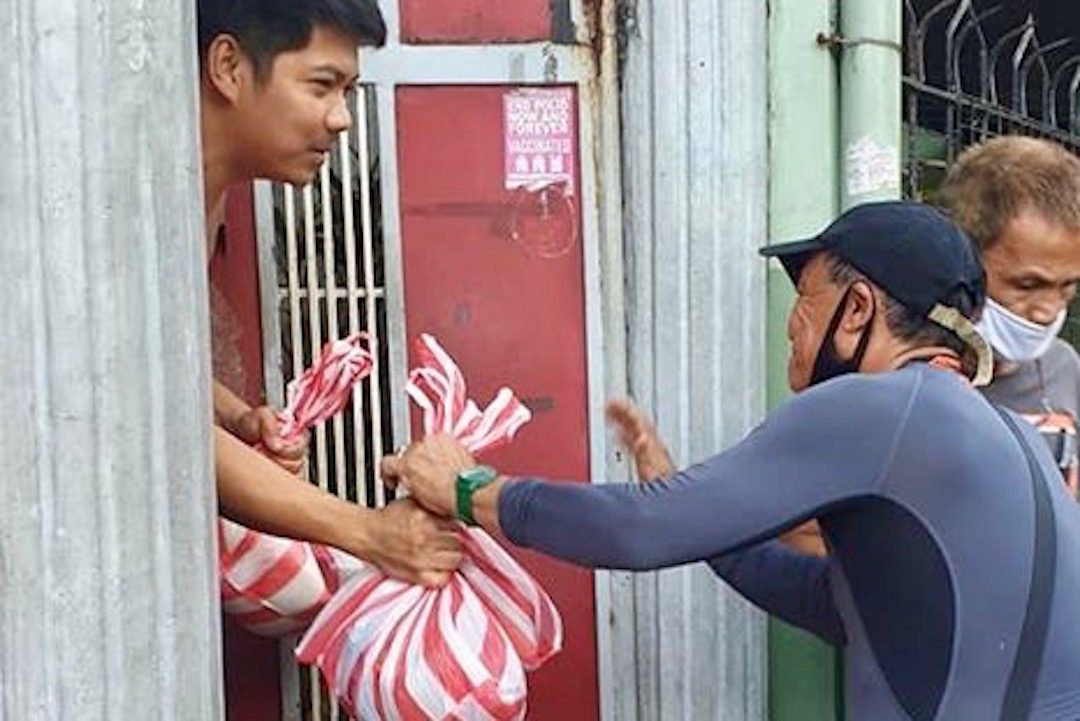
“I have not received any news from them. This is why I’ve been focused on distributing what we have,” Palma said.
Without national aid yet, Palma and his fellow officials have managed to give relief goods for around 9,000 families through their disaster response fund, help from the Quezon City local government, and donations.
Still, many are still crying for help. It was under his watch that dozens of residents from Sitio San Roque walked out of their homes and took to the streets to demand for help, leading to the arrest of 21 residents for breaking quarantine rules.
He does not know how much he and his constituents can go on with an extension.
“Napakasakit sa amin. Pero ginagamit namin ang mga resources. Lumalapit kami sa business sector, si mayor, mga konsehal, napapagtagpi-tagpi pero hindi pa rin sapat para mabigyan lahat,” Palma said.
(It is very painful for us. But we are using resources. We are approaching the business sector, mayor, councilors, we try to make ends meet, but it’s still not enough to provide for everyone.)
‘Nahihirapan kami ‘pag nagsasalita ang Pangulo. Kami ang napapahamak.’
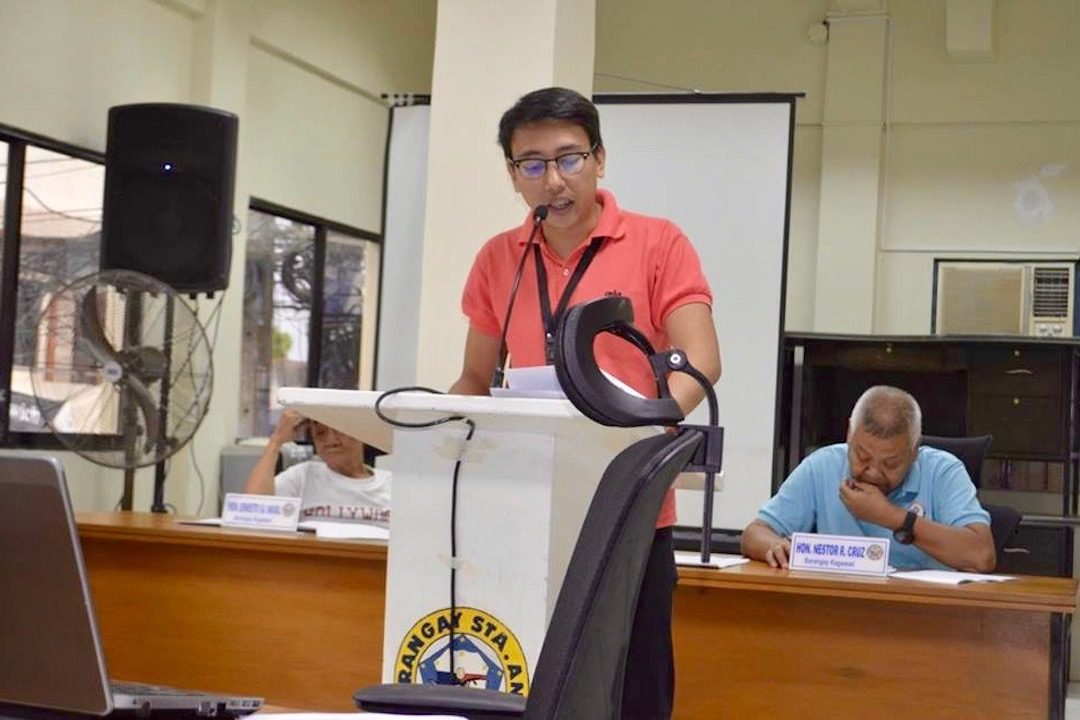
Santa Ana is the 2nd largest in the 5 expansive barangays of Taytay, Rizal. It has 36 puroks divided into 4 cluster areas. It has 120,000 residents divided into 31,000 households. Among them, around 9,000 are classified as informal settlers.
When the lockdown was declared, there was no number to guide officials to know how many needed to be fed, so they tried to go by what they saw on the ground.
They saw the people coming after President Duterte made the announcement that people should go to their barangay officials.
“Nahihirapan kami ‘pag nagsasalita ang Pangulo, ang daming nakikinig. Kami ang napapahamak. Lahat ng tao literal kami ang hinahanapan ng pang-kain nila. Sabi ni Duterte kailangan pakainin ng barangay, gusto nila mapakain kaagad. Eh bago kami makalabas ng pondo, it takes a process. Baka mamaya mademanda kami,” Santa Ana barangay councilor Tobit Cruz told Rappler in a phone interview on Tuesday, April 7.
(We are having a hard time when the President speaks because a lot of people listen. We are the ones who bear the brunt of it. Everyone literally looks at us for food. Duterte said the barangay must feed them, but they want to be fed immediately. But we cannot release funds immediately. It takes a process. We might face lawsuits because of that.)
Cruz and other officials told their constituents to wait, promising that they will do what they can to provide for everyone.
“During the first week, we were kind of relaxed because people seemed to find a way to provide for themselves. On the second week, people became restless,” Cruz said.
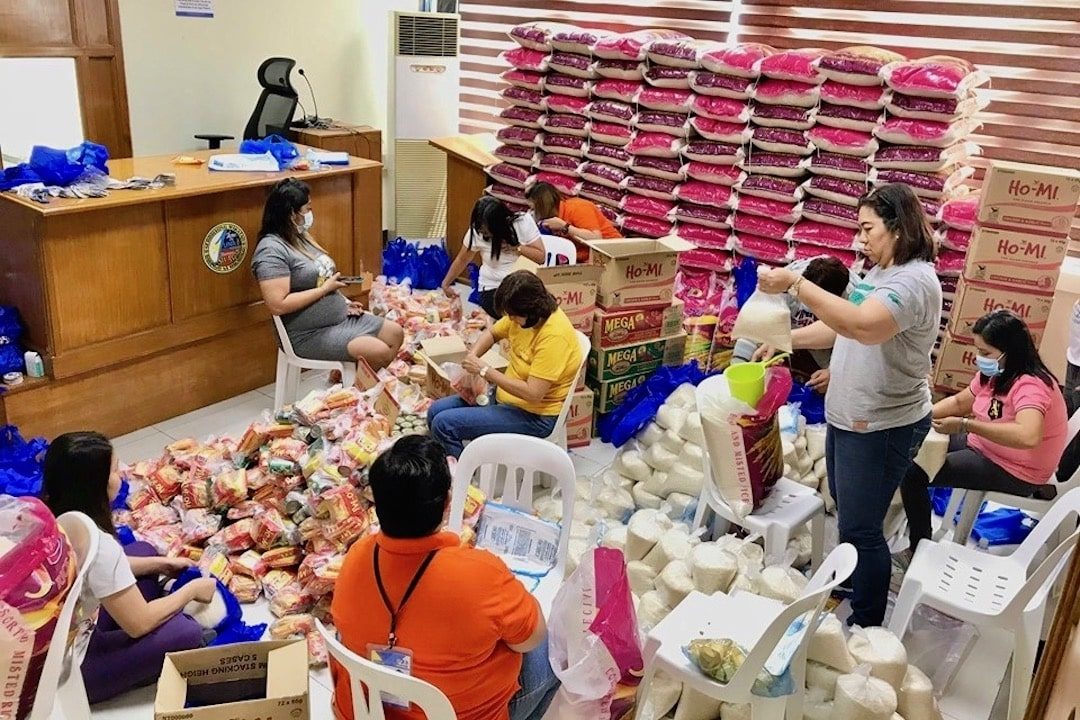
Through their disaster funds and money from realigned projects, Santa Ana officials were able to store P2.1 million in their war chest. They also got help from the municipality government and cash deposits from donors to buy vegetables.
But as of April 7, they have given out goods to around 15,000 families only – barely half of all their constituents. None of them came from the national government.
He heard from municipal officials that Taytay will have 33,000 SAC forms, but they do not know how many will be given to their barangay of 31,000 families alone.
According to the government’s guidelines, the barangays should prepare a list of all the people eligible for aid to get the total number qualified for assistance, but Cruz is worried that since the number of SAC forms had already been determined for them, not everyone who will need cash assistance will receive it.
After Cayetano’s “per household” video went viral, people again came to them. But they still did not have the forms.
“Ngayon pinuputakti kami sa SAC forms. Si House Speaker Cayetano, lahat daw bibigyan. Kinabukasan, sumugod ang mga tao. Wala namang guidelines, sinabi lang na bibigyan ng pera,” Cruz recalled.
(We are getting hit for the SAC forms. House Speaker Cayetano said all would receive help. The next day, people stormed here, but there were no guidelines, they just said that people will be given money.)
Cruz posted about this problem on Facebook to temper the expectations of his constituents. Supporters of the administration sent him hate messages.
“We feel so helpless in the barangay that we have limited funds. We are at the front lines but we hope that the help is more concrete. It has only created more chaos than good,” Cruz said.
On top of social relief operations, barangay officials have been tasked to be the first responders for isolating COVID-19 patients and persons under monitoring and investigation, as well as being enforcers of the lockdown with the police. Barangay Santa Ana, however, only has around 250 people to do all of this.
“Given the magnitude of our responsibilities now, we would not be able to handle this without concrete support, concrete plans. They can’t just pass this on to us without supporting us,” Cruz said.
Nung sinabi ng Presidente na dapat mga punong-barangay ang magbigay, sabi ko, ‘Saan namin kukunin ‘yung ibibigay?’
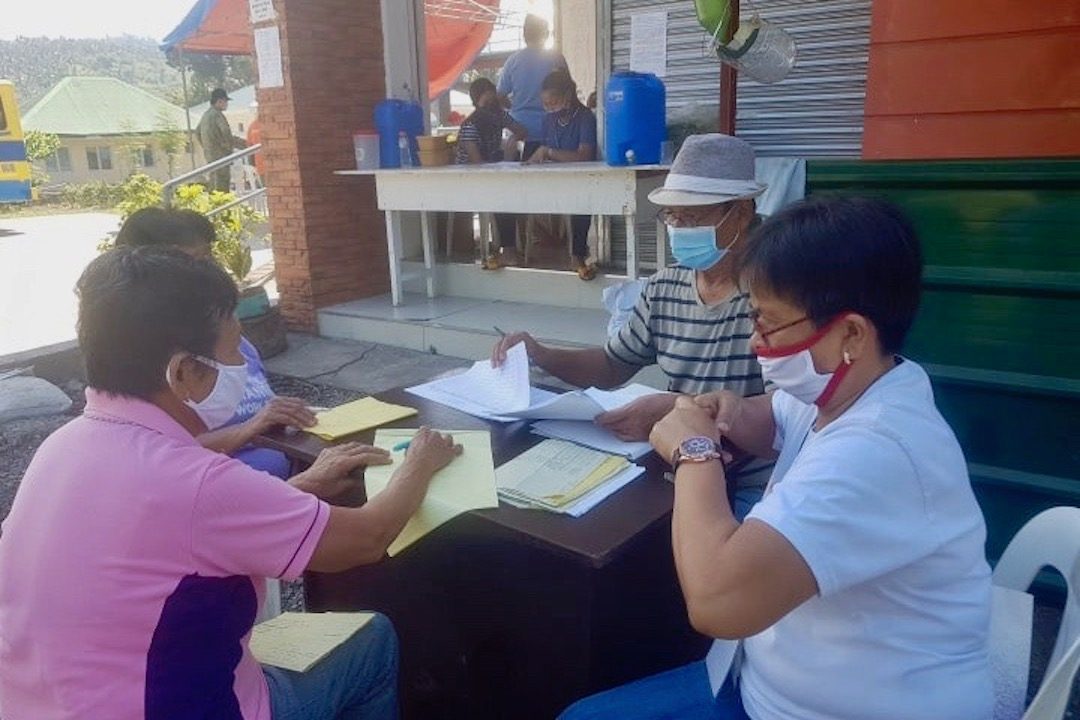
Alan Bolo faced a dilemma. He is the barangay captain of Buluang in the town of Baao in Camarines Sur. He had approximately 2,300 families under him, mostly disenfranchised farmers.
They have not finished counting the people who are eligible for cash assistance, but they were already assigned a number of SAC forms: only 681.
On April 7, in an interview with Rappler, Bolo said he could not think of a way to distribute the cards so that all who needed help would receive it.
“Mag-me-meeting pa po kami ng barangay council (We would have to meet about it with the council),” Bolo said.
Bolo’s barangay would need the financial assistance not because they have run out of money to purchase relief goods, but because they could no longer find a supplier, delaying their distribution of rice for the third week of the lockdown.
“We cannot find a place to buy rice, to buy noodles, and to buy sardines,” Bolo said.
Bolo and his councilors have already given up on searching for sardines and noodles to focus on finding rice, but they still haven’t found any seller.
They used to purchase from grocery stores from Naga and Iriga, but Naga has since been placed on lockdown, and supplies have already dwindled in Iriga, he said. (READ: Farmers trash spoiled vegetables while poor go hungry)
They bought rice from the National Food Authority (NFA) for the second week of the lockdown because they could no longer find rice with better quality. They did not want to purchase more because their constituents complained about the quality of the rice.
“Sana po ‘yung mga constituents, sana po maintindihan nila ‘yung pagod at ‘yung hirap. Patuloy po nagseserbisyo ang barangay officials, sana kaunting pasensya, kaunting pag-unawa para mabigyan kami ng lakas ng loob,” he implored.
(I hope our constituents understand the exhaustion and the difficulty we’re facing. We continue to serve, but we ask for more patience and understanding to strengthen our resolve.)
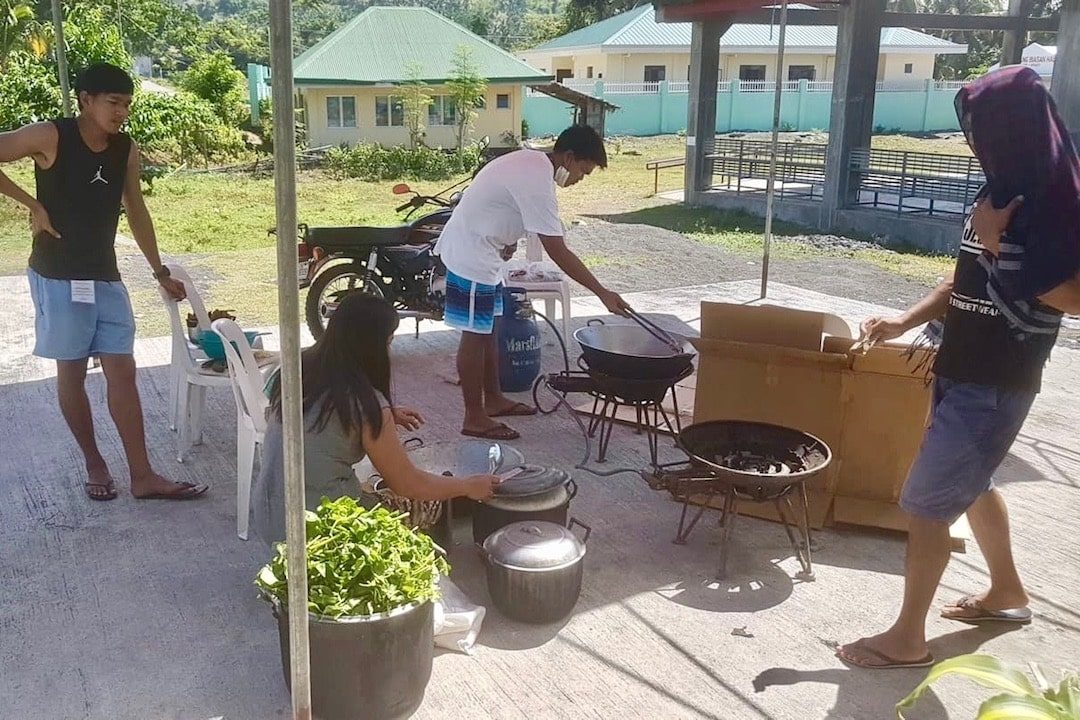
According to DILG Undersecretary Jonathan Malaya, however, there was no shortage. The problem, he said, was the distribution across suppliers, saying that “it’s just that the stores they buy rice from have already lost stock.”
Past midnight on Thursday, April 9, President Duterte ordered DSWD Secretary Rolando Bautista to address the problems of implementing the social amelioration program under the Bayanihan to Heal as One Act.
Bautista tossed the ball back to local government units. He said they expected local government units to have had a “profile” of people in their area ready, including the poor that would need aid under a crisis, even before the national government came up with a social relief plan.
“Dahil may kakulangan sa listahan na ‘yun, nagkaroon na po ng problema (Because of deficiencies in the list, the problem arose),” Bautista explained.
How should barangay captains decide whom to prioritize in distributing limited SAC forms? Malaya referred to what President Duterte said during one of his briefings: “The first ones should be the poorest of the poor.” – Rappler.com
TOP PHOTO: RELIEF PROBLEM. Volunteers repack goods in Quezon City on April 6, 2020, amid the enhanced community quarantine in Luzon due to COVID-19. Photo by Darren Langit/Rappler
Add a comment
How does this make you feel?
There are no comments yet. Add your comment to start the conversation.